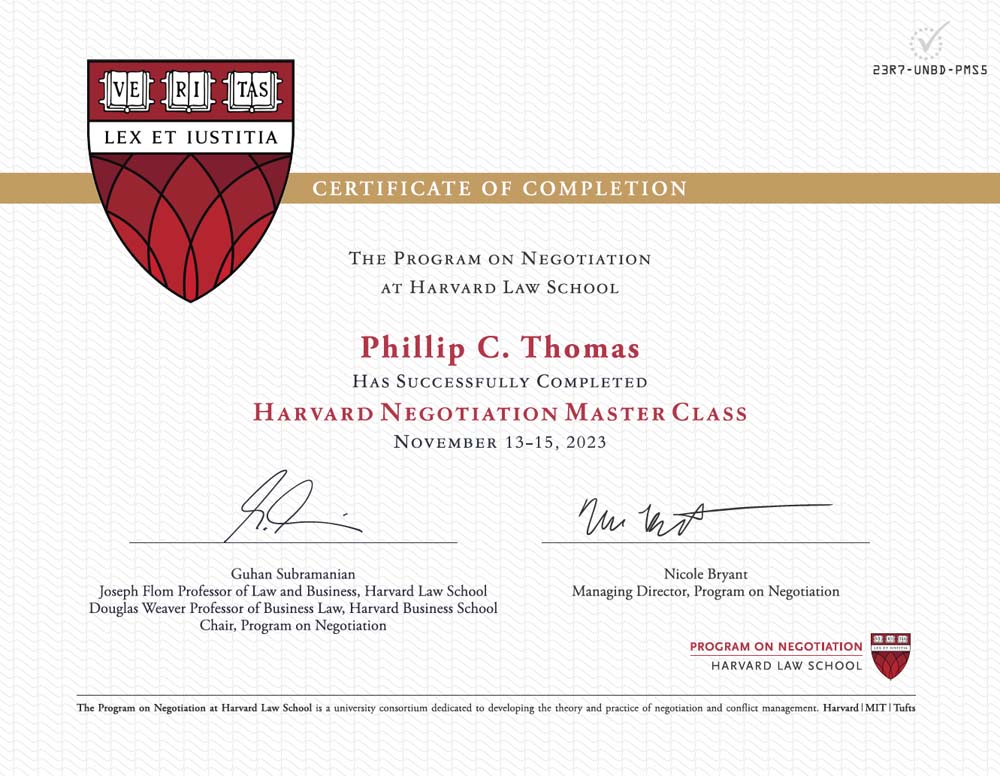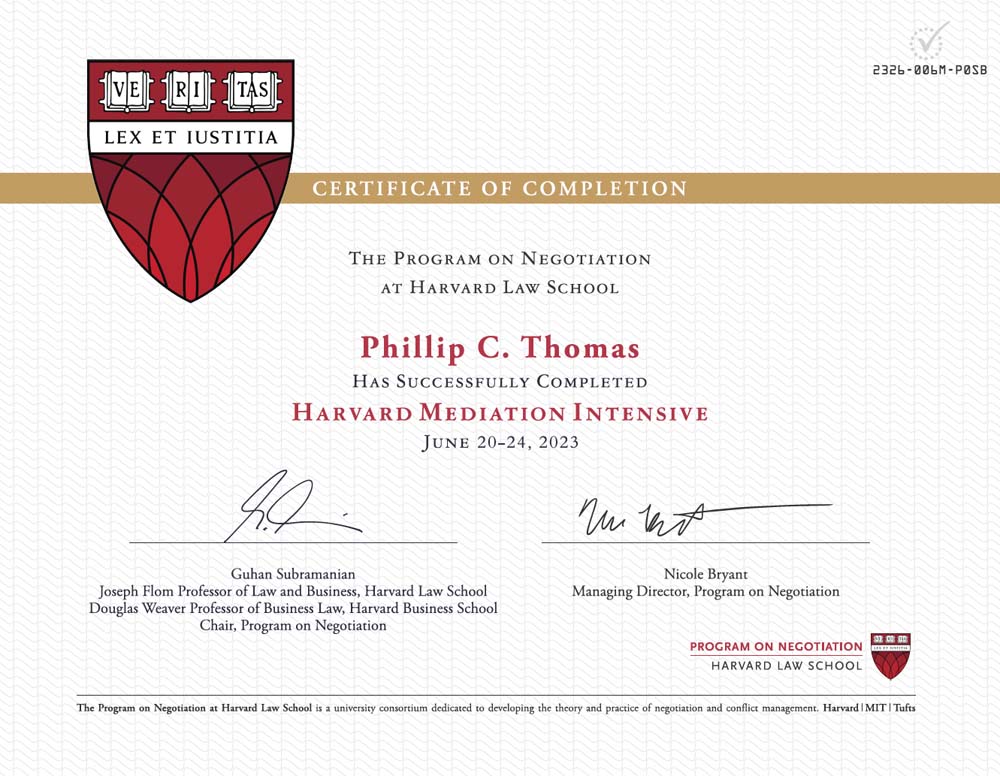Resolving Business Conflicts
One of the costliest areas of business today is when legal entanglements crop up in their various forms. Vendors, employees, partners, customers, and more can emerge representing legal woes for the business. When this happens, it is important to have skilled resources handling your case who have the appropriate legal background and senior-level business experience applicable to the legal matters involved.
Without those resources, these matters can all too often drag on and become financial and emotional quagmires, taking you away from valuable time and effort leading and building your business.
Here, in a nutshell, are 10 important reasons why mediation between parties can result in a host of better outcomes, all of which are good for you and your business.

A recent quote from a business leader:
“Mediation is far more cost-effective, timely, and helpful than spending months fighting between attorneys.
We resolved our differences and got there fast, and now we can move on with building our Company.”
The Value of Mediation
10 Reasons Why Mediation Makes Good Business Sense:
- There is a very good chance it will be far less expensive than arbitration or a judge/jury trial.
- It will take less time and effort on your part. Mediations are typically measured in hours and days rather than weeks, months, or years.
- You have more control over the outcome with mediation – you make the decisions, not a judge, jury, or arbitrator.
- Mediation will allow you to stay more focused on the business you are leading.
- It will use less emotional and psychological energy than months of legal wrangling.
- The scope of possible solutions broadens in mediation; creative solutions are encouraged versus “fixed” legal outcomes.
- Long, drawn-out legal efforts can have a serious negative impact on the Company brand you have carefully built. This can quickly cause severe permanent damage in today’s interconnected social media world.
- Long legal battles may involve employees and others who would be less productive in their Company responsibilities.
- Many drawn-out and expensive legal battles can negatively affect important personal and business relationships.
- Ultimately, you can lose your case – and fail in the legal process after all that time, money, and effort. With mediation, you control the outcome and its ramifications more than a judge/jury trial or through a court-appointed arbitrator.
Getting Underway With A Mediation
The amount of preparation required for a mediator going into a mediation will vary depending on the case’s complexity. However, most mediators will typically spend several hours reviewing the case file, preparing mediation materials, and meeting with the parties to discuss their expectations.
Here are some of the things that a mediator will typically do in preparation for a mediation:
- Review the case file: The mediator will review the case file to get a better understanding of the dispute. This includes reading the pleadings, discovery documents, and any other relevant materials.
- Prepare mediation materials: The mediator will prepare mediation materials, such as a mediation agreement and a list of potential settlement terms.
- Meet with the parties: The mediator will meet with the parties to discuss their expectations for the mediation and to get to know them better.
The amount of preparation required for a mediator can be significant, but ensuring the mediation is successful is essential. By taking the time to prepare, the mediator can help the parties to reach a mutually agreeable settlement.
Here are some additional factors that can affect the amount of preparation required for a mediator:
- The number of parties involved: Mediations involving multiple parties typically require more preparation than mediations involving two parties.
- The complexity of the issues: More complex cases typically require more preparation than less complex cases.
- The mediator’s experience: More experienced mediators may require less preparation than less experienced mediators.
If you are considering mediation, it is important to factor in the amount of preparation required for the mediator when deciding.
It is important to remember that regardless of the immediate cost, mediation typically saves you considerable time and money by resolving the dispute quickly without going to court or arbitration.
Mediation also helps avoid the long, drawn-out stress legal cases can cause while also avoiding the negative impact on day-to-day business operations that often is associated with legal battles that can rage on for months or years.
Mediation – A Binding Agreement Between You and The Other Party or Parties
Arbitration – A Binding Agreement Determined By An Independent Party
Judge and Jury – A Binding Legal Declaration Affecting You Directly As Determined By Others Outside Your Business
Which Makes More Business Sense To You?





